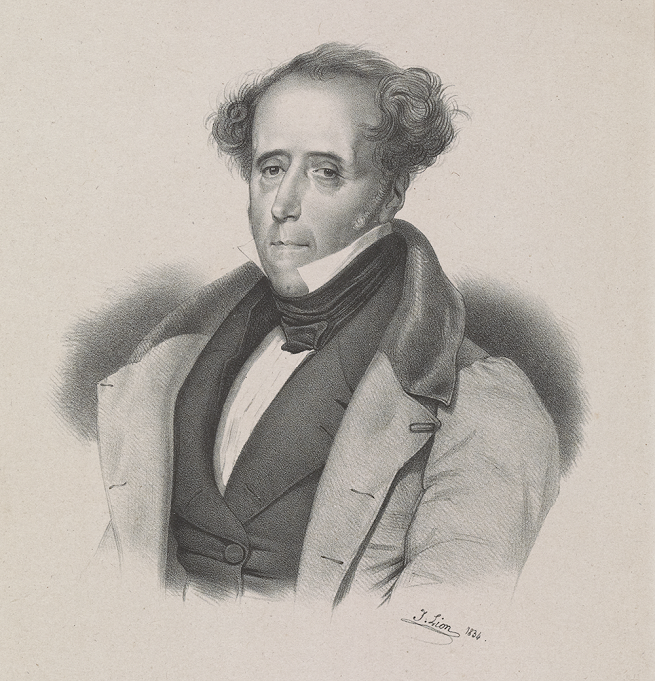Chateaubriand's "Atala" and "Röhne" publications are seen by the researchers of his work as the first brilliant artistic achievements of early literary romance in France. The beloved thesis of the author of "The Genius of Christianity" is affirmed in "The Love or Love Passions of Two Savages in the Desert" : only by faith can a man beat history and death. Young Frenchman Röhne, experiencing a severe love disappointment, finds himself in North America where he finds shelter among the Natchez Indians tribe. There, he meets the shadowy sage Shaktes, who tells his life. Though he received a solid education with the Spaniard Lopez, Shaktas lived in the Indians and fought with enemies of his tribe. He was captured in captivity, and he was saved by the daughter of the leader of the enemy tribe Atala who had fallen in love with him. She settled his escape and followed him in his wandering through the virgin forests of North America. In front of her mother's deathbed, the godly maiden, who accepted the Christian faith, had vowed to serve with dedication to the Virgin Mary. Spontaneously responding to the pure love gusts born to her soul, Atala fails to overcome the confusion that gives rise to the sensual gusts awakening to her and her beloved. After long-suffering, she puts an end to her life. Her death and funeral were recreated in a grim and sinister pathetic tone by the confessing Shaktas.
In the tradition of the sentimental novel is recreated the love idyll among the exotic nature of the New World. Apparently,Chateaubriand's intention is to describe not "pure nature," but "beautiful nature", that is, the nature in which savage and civilization,the indigenous naivety and European upbringing, genuine simplicity and sophisticated sensitivity combine into an attractive synthesis. The author describes to us the possibility of combining natural attributes with secular conventions, benevolent savage with civilized religion, praising the insights of sophisticated sensitivity, which for him is a more valuable virtue than rational ability. Although the characters are torn apart by the collisions between their passionate aspirations and their religious precepts, the narrative is most commonly regarded as a pathetic art apology of Christian morality. The analysis of the struggle of ideas laid down there, perceived the Atalla poem as a polemical literary work which the founder of French literary romanticism opposed to Rousseau's "Father of Romanticism". According to Rousseau moral perfection is in the human being, not outside. So the only way to ensure the triumph of happiness and virtue in society is to follow nature ... Chateaubriand, on the contrary, believes that virtue and happiness can only be achieved in the struggle against the nature - in this struggle of man with his only support is the Religion.
In the hymn "Röne", the refugee found in the peaceable tribe of the Natchez Indians, who adopted the Catholic faith, a young French aristocrat, Röne, tells his life to the old Hindu sage Shaktes and Catholic missionary Suel. He did not keep a memory of his mother who died while he was a toddler, Röne was raised by heartlessly tight relatives. He has passionate affection for his sister, who shares his tastes and passions, and is the only human being to understand his sensitive soul. Defeated by the deep turmoil after the death of his father, Röne really thinks of dedicating himself to monastic life, but then decides to get rid of the grief through constant wanderings. At first he chose to live in Paris, sought comfort in the lively worldly life, but soon found himself captured by loneliness and boredom and moved to live in a village because life in nature corresponds to his natural tendency to dream, to reflect on the transience of human existence and to be given to the contemplation of the infiniteness of Infinity. During this period of his life, the thought of putting an end to his life grew obsessively in his mind. To comfort and pacify her brother, Sister Amelie comes to live with him in a village as he can free him from the compulsive thought of suicide. But then the irreparable happens. Amelie is sick of an incurable disease, falls into despair, retires to a convent where he is waiting for the end of the days. Röne soon realizes the truth: his sister has vowed to monastic life, because she has sensed the temptation of the incestuous passion that began to disturb her. He realized that he could no longer hope for the close support of his sister, who had found comfort in religion suppressed by her last disappointment, that he took his journey to America. After listening carefully to the revealed confession of the deeply disenchanted young Father Swelle, the spiritual father of the godly Indians who embraced the rescue Catholic faith, pronounces in his harshly edifying tone a sermon in which daily communication with God and His wisdom is recommended as the only reliable a means of overcoming loneliness, isolation and disappointment. According to the zealous missionary of the Catholic faith, man in vain seeks comfort for his soul in solitary reflections. The only way out for him is the dedicated care of the self-serving and inaccessible service of God, who is the only one called to resolve the contradictions that have settled in the soul of man.

thank you for this. very educative and interesting. keep going! upvoted!
Thank you :)